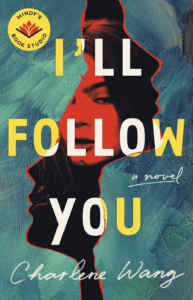During a strange, tumultuous period of my life — after being raped by a college classmate and sexually harassed by my supervisor in a span of a year — I developed an appetite for watching women kill men. Night after night, eating takeout in front of my laptop, I returned to the same scenes: Amy Dunne slicing her lover’s throat in Gone Girl; Uma Thurman swinging a blade at the men who wronged her in Kill Bill. Megan Fox eating high school jocks in Jennifer’s Body.
Those were just the amuse-bouches to the feminist revenge genre: pretty soon, I was devouring the deep cuts like Toshiya Fujita’s Lady Snowblood, about a daughter who avenges her mother’s rape or 1978’s I Spit on Your Grave, where a woman brutally murders each of her rapists, shooting them in increasingly opportune and poetic places. No matter how many creative ways a rapist could die on the screen — scalpel, pistol, vagina dentata (look it up) — I couldn’t get enough. But for what, exactly? And could my appetite ever truly be satisfied?
The term “Good For Her” has become a shorthand for this kind of catharsis — the moment when a woman exacts violent revenge. It began as an Arrested Development meme in the 2010s, when Lucille Bluth quips “Good for her” after hearing a news report about a mother who has driven into a lake with her children. Today it’s a subgenre on the rise, and the catharsis of female violence has never been so widely celebrated — or commodified. The Good For Her novel crawling under readers’ skin, was an ad I saw recently walking around the East Village, sandwiched between ads for haircare products and Playboy. My own TikTok “For You” Page is filled with dark aesthetic edits hashtagged #femininerage #women empowerment #unhingedwomen. And when my feminist revenge novel I’ll Follow You is published this fall, you better believe that I’ll be marketing it as a “coming-of-rage” novel all over social media.
I feel uneasy doing it; the movies and books that once sustained me in my twenties now feel less like a lifeline than a safety blanket I’ve outgrown.
Like all things, it happened gradually, and then all at once. A few years ago, right after I moved to New York City, I was followed home by a man coming out of the subway. I am 5’6″ and 125 pounds; he was over six feet tall, and persistent. I still remember it so vividly: the sound of his footsteps behind me, his gaze prickling the back of my neck. With shaking fingers, I fumbled in the depths of my handbag for my pepper spray, only to realize that the safety latch jammed. What saved me was not a roundhouse kick, or a well-placed box cutter — it was a young couple I stumbled upon, who intervened. The woman ushered me to the safety of the building I was trying to get to; her partner headed the creep off.
After that I lifted more at the gym. I signed up for a self-defense class. Logically, I knew that no kick or punch could undo what had already happened — or prevent it from happening again. But part of me still wanted to believe the fantasy Amy Dunne and The Bride offered: that if only I kicked enough ass, I’d be safe.
Then, one spring afternoon, I got a ping while I was out at brunch. After my supervisor sexually harassed me, I’d put a Google News alert of his name on my phone, thinking that sooner or later, other women would come forward. This was not that day. Instead, he had been elevated to a powerful public office. The man who retaliated against me when I declined his overtures was now tapped to oversee thousands of employees, including, of course, many women.
By the time Promising Young Woman came out, the thrill of violence had never felt so cheap, flimsy. And yet, when I began writing the first draft of my own feminist thriller shortly after, I stuck with the same script. For four years, draft after draft ended with my protagonist killing her abuser with a machete with an antiquated ivory handle. But no matter how adorned — or implausible — my weapon of choice was, early feedback remained the same. Faith turns cold-blooded so quickly, my agent told me. Can we see her rage more from the beginning?
A sensible craft solution, but tied to an intractable problem. Faith, my protagonist, was, of course, a stand-in for me. Rage was simmering under the surface during those dark, formative years, but, if I had to be honest, there was room for other emotions too: guilt, regret, even affection for my once-mentor. For a long time, I struggled to name what had happened to me, to see it for what it was. When I talk to other survivors, the “frog boiling in the pot” metaphor is often brought up. Why didn’t we jump? we wonder. I like to think that we did — but the jump takes years.
I’ll Follow You is a contemporary campus novel, and no campus novel is without an enigmatic professor. Faith Thibodeaux arrives at Harkness College hoping to reinvent herself, but instead falls into an affair with her older, wealthy professor. At first, what Professor Wyman offers her — culture, art, fine food and wine — seems like a refreshing change of pace from playing pong in dark fraternity houses. But as their power imbalance plays out in subtle, increasingly menacing ways, Faith’s sense of self becomes dangerously fractured. Naive and vulnerable as she is, she’s also savvy — and online — enough to turn her experiences into narrative. Posting about the affair, making light of it and even profiting off it, reassures Faith that she’s not a victim. But when Wyman’s predation comes to light, she realizes that he’s telling a story, too.
My agent wasn’t wrong: if Faith was going to kill Wyman by the end of the book, then yes — the novel needed more rage. But much of what animated the novel to begin with was exploring those other emotions short-circuited by anger. If these “Good for Her” novels were like steaks, best served raw and bloody, then mine had arrived at the table well-done, impossible to send back.
Eight drafts in, I was stuck.
Finally, one day, in a fit of writerly anguish, I made a different choice: I cut the kill scene entirely. This isn’t going to work, I remembered thinking, so who cares if I try it? I resolved to write a draft where Faith’s story didn’t end in bloodshed, letting myself draft as sloppily as possible because there was no way this draft was going to see the light of day — or sell. Now that Faith was no longer a vengeful killer of bad men, I worried that she would become too passive, boring and weak. And then there was the larger question, the question I struggled with in my own life: what does revenge look like without violence?
Realistically, many women are physically incapable of defending against their abusers, much less hurting them. And when I thought of my supervisor, or the college classmate who’d slipped a date rape drug in my drink, I didn’t want to kill them. Violence begets violence; and yet, it seemed to me that sexual harm was not just a violation of the body. It was also a violation of language, a battlefield of competing stories, he said-she said, and it was this continuous, ongoing violation that had far-reaching consequences in my life. The promotion and advancement I was denied, because partners sided quietly with my supervisor. The safety I’d never feel again, going out for drinks. And the women I knew in real life longed for the same things. They wanted to juggle a blade, looking like Uma Thurman in latex — but they didn’t need it.
Nor did my protagonist, as it turned out. Once the machete was out of her hands, things took a surprising turn. She became less of a cipher, and more human — with all the messy, contradictory motives and emotions that many survivors live with. But she wasn’t a passive victim, either. Ultimately, I’ll Follow You is about how women survive in a world stacked against them, not by overpowering men — or intimidating them — but by outsmarting them.
The “Good For Her” canon is still going strong. At a time of historic injustice and reproductive rights under siege, my “For You” Page swings wildly from trad wife fantasies to vengeful women dripping in blood. Both trends, I think, reflect a deeper hunger for the less visceral, and more inchoate: systemic change. Recently, I saw the news that the female cannibal novel whose ads I saw walking in the East Village is set to get a Hollywood adaptation. When it comes out, I’ll be the first to watch it in theatres, cheering on the gore with popcorn. Then I’ll walk home with my pepper spray in my handbag, knowing that other stories exist, too.
_____________________________


















